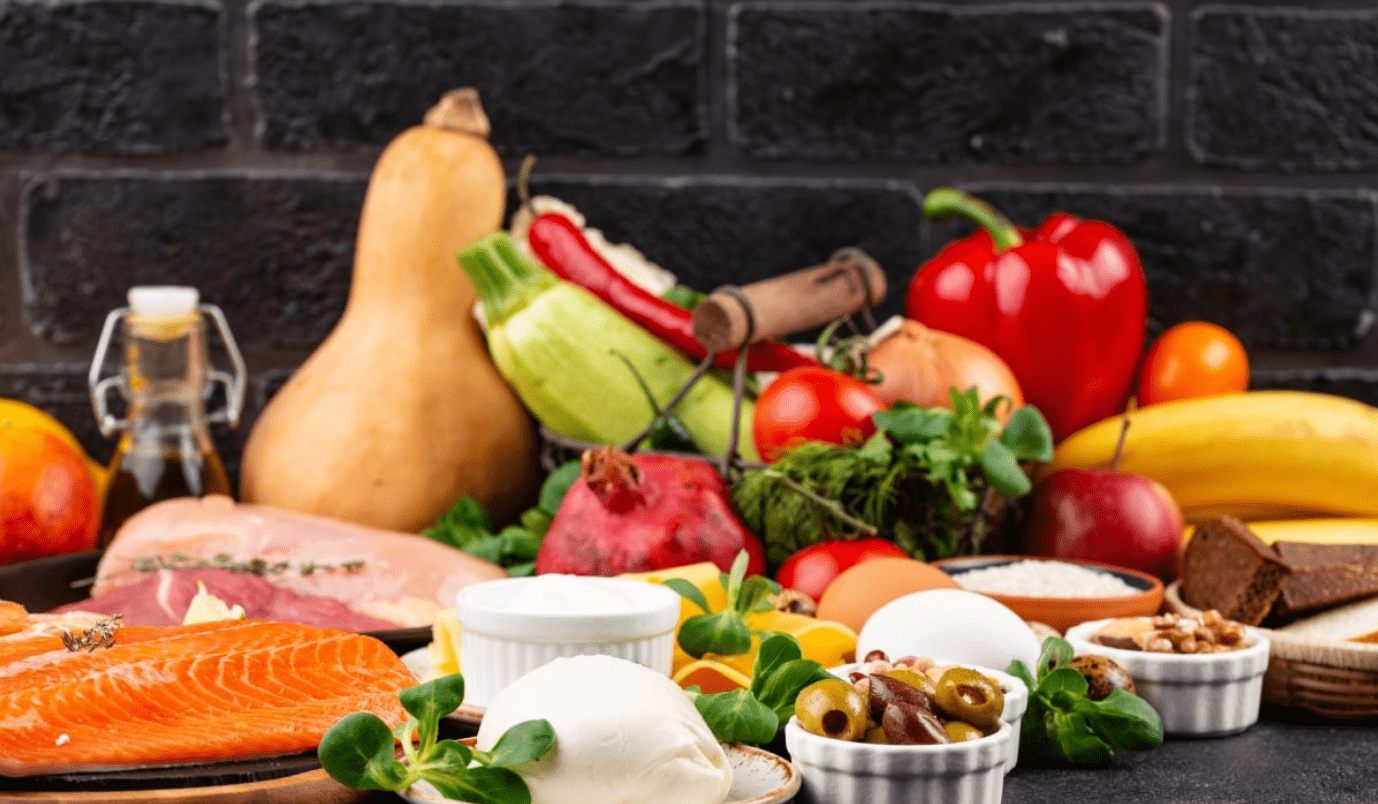There is no need for extra effort to eat healthily. Proper storage, cooking, and consumption of purchased foods are sufficient for healthy nutrition. Making dietary habits a lifestyle is considered sufficient for healthy eating. If you want to lead a quality life, eat adequately and balancedly!
The first requirement for a quality and healthy life is balanced nutrition. The habits you adopt in your life open the door to a healthy and balanced life for you. Healthy and balanced nutrition is a subject that should be paid attention to at every age. Acquiring awareness of adequate and balanced nutrition is essential.
Unbalanced nutrition can lead to the formation of diseases such as heart, obesity, diabetes, and high cholesterol. The number of people who cannot maintain the balance of healthy and balanced nutrition is increasing day by day.
It is necessary to consume food substances in adequate quantities and to use them appropriately in the body in order to ensure the growth of the body, the renewal of tissues, and healthy functioning.
With the tips you will be given about healthy and balanced nutrition, you can eat healthily and balancedly and protect yourself against many diseases.
Balance of Protein, Carbohydrates, and Fat
Although they cannot replace each other, they are known as intertwined, complementary definitions. They are important for healthy weight control, productivity, and sustainable energy. If the balance of carbohydrates, protein, and fat is ensured when determining your meals, you will be both satiated and remain full for a long time.
Carbohydrates contain fiber, starch, and sugar. Which one is the right carbohydrate among them? The one with less sugar and more fiber should be preferred. You may wonder how much should be consumed per kilogram of weight? Two or two and a half grams of carbohydrates per day are sufficient. 85% of these should be complex, while 15% should be simple.
Carbohydrates, which are divided into simple and complex according to their chemical structures, are important for healthy and balanced nutrition. Both carbohydrates contain 4 calories per gram. Complex carbohydrates rich in dietary fiber are found in vegetables, legumes, and whole grains.
Their most basic feature is that these foods are rich in fiber. To elaborate further, they have long sugar chains. The carbohydrates found in fruits are simple sugars, unlike desserts and sugary foods.
Why Does the Body Need Carbohydrates?
Carbohydrates, which are the preferred energy source by the body, are important for our brain. Carbohydrates are needed for alertness and concentration. The body needs carbohydrates for the brain to function, muscles to move, and to ensure a better mood by producing serotonin.
Why Does the Body Need Proteins?
The body needs proteins for hormonal health, strong muscles and bones, and immunity. In addition, proteins are crucial for cell growth and repair. Proteins are generally found in dairy and yogurt, fish, seafood, poultry, eggs, and legumes. They play an important role in sustaining energy, controlling blood sugar, and increasing satiety.
They provide a long-lasting feeling of fullness due to their late departure from the stomach and rapid mixing into the bloodstream. This results in consuming fewer calories.
Protein, which is the building block of the body, can create an infinite number of proteins when there are 20 amino acids in human cells. The 8 amino acids that the body does not produce are obtained through nutrition.
The daily protein requirement for a healthy adult is determined to be 0.8 to 1.0 g per kg/day. 20% of the daily energy intake is met by proteins. Animal protein sources are also rich in saturated fat and cholesterol.
In recent times, reducing fats is often mentioned to those who want to lose weight, especially to heart patients. However, the common belief that you cannot lose weight without eating fat is widespread. Fat plays a critical role in the human body. It stores 9 calories per gram. The human body is like a machine that produces necessary fatty acids.
It obtains the two fatty acids it cannot produce through nutrition. The fatty acids found in the human body are important components for cell membranes.
Colorful Plates: Variety of Vegetables and Fruits
Preparing a colorful plate that appeals to both our eyes and our health is important for health. By following the fruits and vegetables we can consume by considering the rainbow, we can increase their variety. Fruits and vegetables are a powerful source of minerals and vitamins for the human body.
However, many people do not know about the bioactive compounds they contain. The reason why the fruits and vegetables we consume are colorful lies in the bioactive compounds found in the structure of plants. These are known as phytochemicals.
Phytochemicals are simply chemical compounds produced by plants. They contribute to the formation of aroma, texture, and color in the natural structure of plants. They play an active role in the survival and protection of plants. Although not essential for life, they have various benefits for human health.
Fruits and vegetables are found in five different colors according to phytochemicals. Orange-yellow, green, red, purple-blue, and brown-white. Consuming fruits and vegetables of different colors highlights the acquisition of high nutrients and many health benefits.
If we were to list the health benefits of fruits and vegetables;
-They have a protective effect against chronic diseases.
-They protect eye tissues by reducing cataracts and macular degeneration.
-They prevent the harmful effects of reactive oxygen species.
-They are protective against various cancers (prostate, stomach, and lung).
-They reduce the risk of heart and vascular diseases.
-They have antimicrobial and antibacterial pr
operties.
-They provide resistance to diseases and contribute positively to the immune system.
Healthy Snacks and Snack Ideas
Snacks are the first support for those who want to diet. The most curious issue, the snack, does not only mean dieting. It is also necessary to pay attention to the foods we consume. In addition, attention should be paid to the appropriate time, amount, and types of consumption.
What kind of benefits do snacks have? A diet that leaves a person hungry cannot be considered a healthy diet. Snacks are the most important support for losing weight without being hungry.
Snacks help control fluctuations in blood sugar. It will dull your feelings of hunger and lead to fewer cravings. A diet should be made specifically for the individual. Here are some healthy snack ideas for you…
-1 egg + 1 tablespoon of oat bran + seasonal vegetables
-1 dried fig + 6 raw almonds
-1 cup of probiotic yogurt + 1 serving of fruit
-1 cup of low-fat milk + wheat bran
-2 breadsticks + 1 glass of buttermilk
-4-5 dried plums + 2 whole walnuts
-½ bagel + 1 tablespoon of cream cheese or salmon
-1-2 slices of bread + 1 slice of white cheese
-Grilled cheese with light cheddar on whole grain bread + seasonal greens
-1 cup of fruit yogurt + 10 hazelnuts
-1 cup of unsalted popcorn + 1 handful of raisins
See you in the next post,
Anil UZUN

